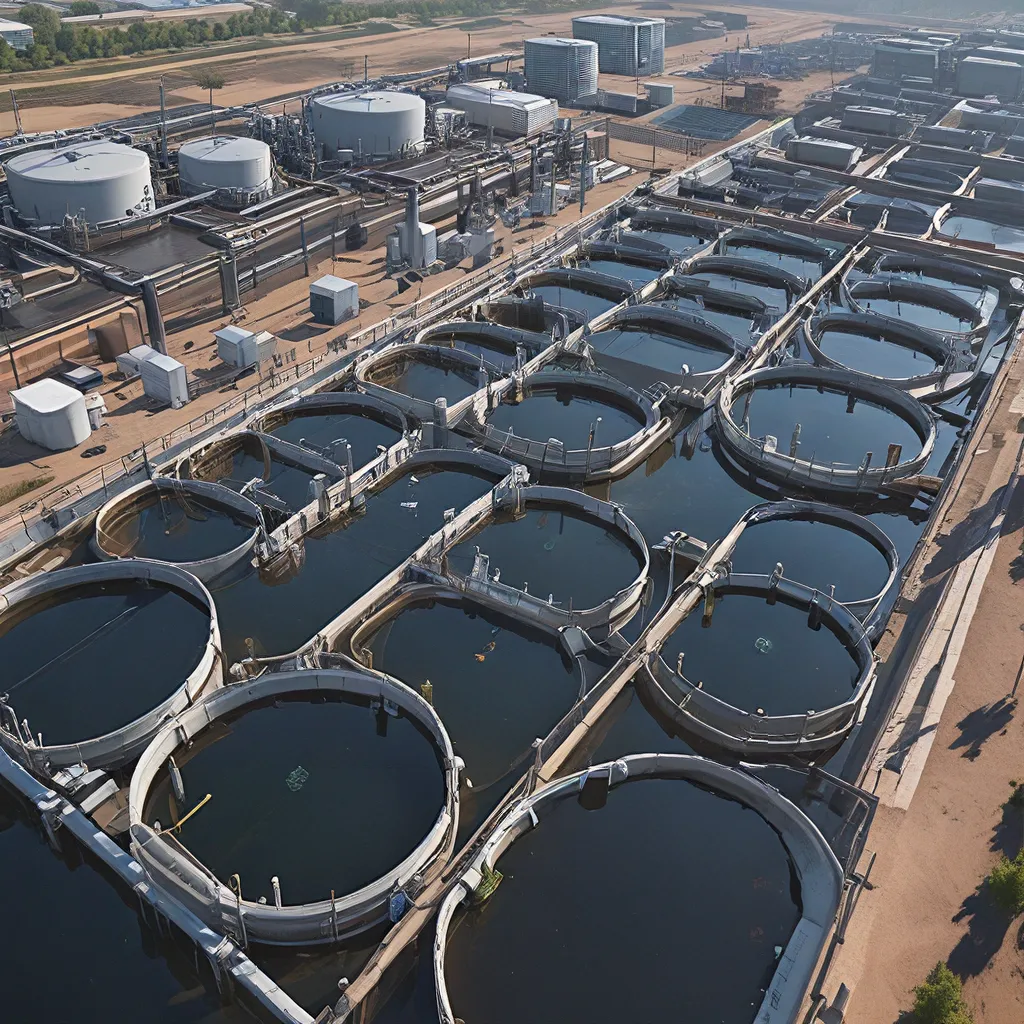
As someone who’s always been fascinated by the intersection of technology and the environment, I can’t help but feel a tinge of excitement when I think about the potential of the metaverse to revolutionize the way we approach wastewater treatment. It’s like the perfect marriage of the digital and the physical, a realm where the boundaries between the virtual and the real begin to blur.
Just imagine it – a virtual wastewater treatment plant, complete with digital twin sensors, AI-powered simulations, and augmented reality interfaces. It’s the stuff of science fiction, and yet, it’s rapidly becoming a reality. The metaverse offers us a unique opportunity to rethink and reimagine the way we manage our precious water resources, and I for one, am eager to dive in (no pun intended).
The Rise of the Digital Twin
One of the key innovations that’s paving the way for the metaverse’s impact on wastewater treatment is the concept of the digital twin. Essentially, a digital twin is a virtual representation of a real-world object or system, created using data from sensors, simulations, and other sources.
In the context of wastewater treatment, a digital twin could be a highly accurate, 3D model of a treatment plant, complete with all the intricate details of the infrastructure, equipment, and processes. And the best part? This digital twin can be accessed and manipulated in the metaverse, allowing engineers and operators to experiment, analyze, and optimize the system without ever setting foot in the physical plant.
Imagine being able to troubleshoot a malfunctioning pump or test out a new chemical treatment process in the virtual realm, without the risk of disrupting the real-world operations. It’s a level of flexibility and experimentation that’s simply not possible in the physical world.
But the potential of digital twins goes even further. By integrating augmented reality (AR) and virtual reality (VR) technologies, operators can virtually “step into” the digital twin, gaining a first-hand, immersive understanding of the wastewater treatment process. They can navigate through the virtual plant, inspect equipment, and even simulate maintenance and repair procedures – all from the comfort of their own offices.
Streamlining Operations and Training
The benefits of the metaverse and digital twins extend far beyond just experimentation and optimization. They can also play a crucial role in streamlining the day-to-day operations of a wastewater treatment facility.
Imagine being able to monitor the vital signs of your virtual plant in real-time, with sensors feeding data directly into the digital twin. You could track key performance indicators, identify potential issues, and even trigger automated responses – all from a centralized, virtual control room. No more running back and forth between the physical plant and the office; everything you need is right at your fingertips, in the metaverse.
But the real game-changer, in my opinion, is the potential for enhanced training and employee development. Traditionally, training new operators or maintenance technicians has been a time-consuming and potentially dangerous process, requiring hands-on experience with complex equipment and hazardous materials.
However, in the metaverse, trainees can engage with the digital twin, learning the ins and outs of the wastewater treatment process in a safe, risk-free environment. They can practice emergency procedures, troubleshoot problems, and even simulate catastrophic events – all without ever putting themselves or the actual plant at risk.
This not only leads to more effective and efficient training but also helps to cultivate a more knowledgeable and confident workforce. Imagine the peace of mind that comes with knowing your team is fully prepared to handle any situation that may arise, thanks to their virtual training experience.
Embracing the Metaverse: Challenges and Opportunities
Of course, the integration of the metaverse and wastewater treatment is not without its challenges. There are practical and technological hurdles to overcome, such as ensuring the digital twin accurately reflects the physical plant, securing the virtual environment, and integrating the metaverse with existing control systems and data management platforms.
Alpha Wastewater, a leading provider of wastewater treatment services, has been at the forefront of this digital transformation. They’ve been working closely with researchers and technology partners to explore the potential of the metaverse and develop innovative solutions that could revolutionize the industry.
But the challenges are worth it, in my opinion. The metaverse offers us a unique opportunity to reimagine the way we approach wastewater treatment, to push the boundaries of what’s possible, and to create a more sustainable, efficient, and resilient water management system.
Who knows, maybe one day, we’ll all be donning our VR headsets and exploring a virtual wastewater treatment plant, solving problems and optimizing processes in a whole new, digital dimension. It’s an exciting prospect, and I, for one, can’t wait to see what the future holds.
So, what do you think? Are you ready to dive into the metaverse and explore the future of wastewater treatment? Let me know your thoughts – I’d love to hear your perspective on this fascinating intersection of technology and the environment.